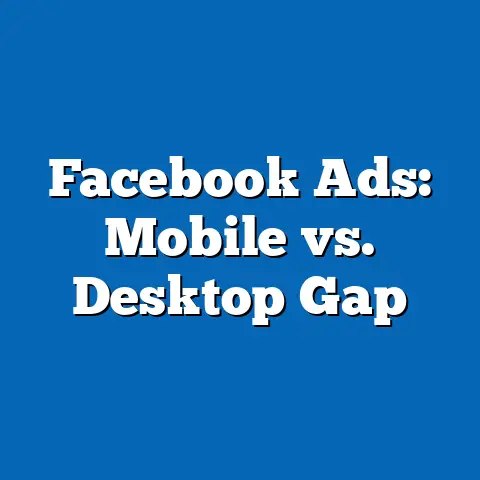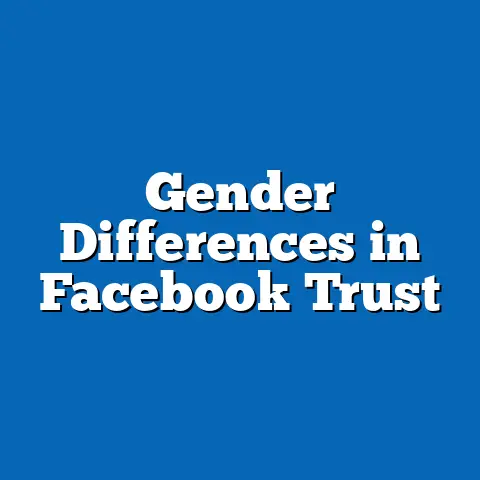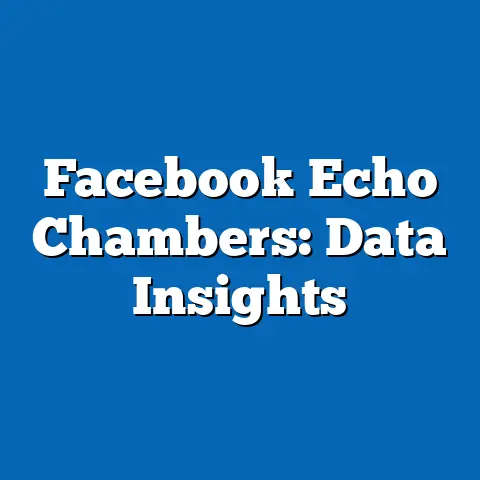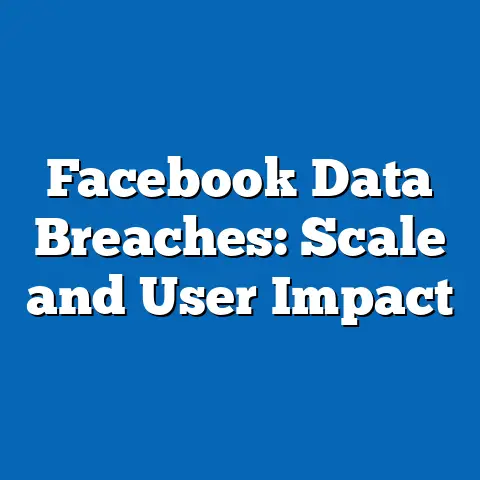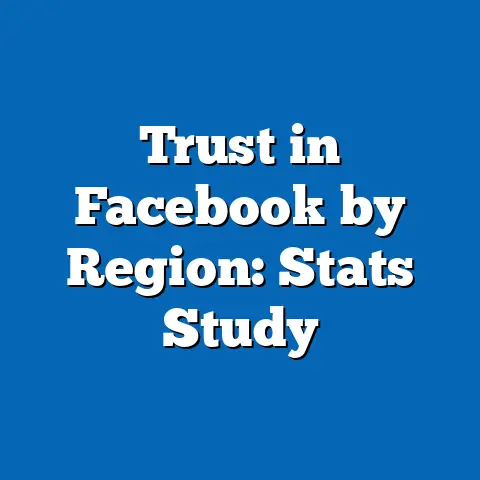Facebook News: Gen Z Skepticism
As digital platforms continue to shape the way we consume information, Facebook—once a dominant force in social media—faces a unique challenge in 2024: growing skepticism among Generation Z (Gen Z), typically defined as individuals born between 1997 and 2012. Despite Facebook’s efforts to innovate its news delivery through features like the “News” tab and partnerships with publishers, recent data reveals that only 21% of Gen Z users trust Facebook as a reliable source for news, compared to 36% of Millennials and 48% of Baby Boomers, according to a 2023 Pew Research Center survey. This generational divide signals a critical hurdle for the platform as it seeks to remain relevant in an increasingly fragmented media landscape.
Innovation in Facebook News: A Platform in Transition
Evolution of News Delivery on Facebook
Facebook has long been a pioneer in integrating news into social media, with its News Feed algorithmically curating content since its early days in 2006. By 2019, the platform introduced the dedicated “News” tab in select markets, aiming to provide users with curated, high-quality journalism through partnerships with major publishers like The Washington Post and Bloomberg. This move was backed by a reported $300 million investment over three years to support local journalism, as per a 2019 announcement from Meta.
However, despite these efforts, adoption has been uneven. A 2022 Reuters Institute report found that only 12% of U.S. users regularly accessed the News tab, with younger users showing even lower engagement at just 7% among those aged 18-24 (Gen Z’s core demographic). The platform’s algorithmic transparency—or lack thereof—remains a sticking point, as many users report feeling overwhelmed by sensationalist or misleading content in their feeds, even with the News tab’s curated approach.
Technological Innovations and Challenges
Facebook has also experimented with AI-driven personalization to improve news relevance, alongside tools to flag misinformation through third-party fact-checkers. In 2023, Meta reported that it reduced the visibility of false content by 50% compared to 2020 levels, thanks to these tools. Yet, Gen Z users remain wary, with 62% citing concerns over misinformation as a primary reason for distrusting Facebook News, according to a 2023 survey by the Knight Foundation.
This skepticism is compounded by the platform’s historical baggage, including the 2016 Cambridge Analytica scandal, which eroded trust in how Facebook handles user data. While innovations like enhanced privacy controls and misinformation labels aim to rebuild confidence, they have yet to resonate with younger audiences who prioritize authenticity and transparency.
Statistical Trends: Gen Z’s Declining Trust in Facebook News
Demographic Breakdown of Trust and Usage
Gen Z’s relationship with Facebook News is markedly different from that of older generations. According to the 2023 Pew Research Center study, only 18% of Gen Z users (ages 18-26) use Facebook as a primary news source, compared to 31% of Millennials (ages 27-42), 43% of Gen X (ages 43-58), and 55% of Baby Boomers (ages 59-77). This generational gap is stark, reflecting broader shifts in digital behavior and platform preferences.
Gender differences within Gen Z are minimal, with 19% of male users and 17% of female users relying on Facebook for news. However, educational attainment plays a role: Gen Z users with a college degree or higher are less likely to trust Facebook News (15%) compared to those with a high school diploma or less (23%), per Pew data. This suggests that higher education may correlate with greater awareness of misinformation risks or exposure to alternative platforms.
Platform Preferences Among Gen Z
Gen Z’s skepticism toward Facebook News is also tied to their preference for other platforms. A 2023 Statista report indicates that 67% of Gen Z users turn to Instagram for news snippets, 54% use TikTok for current events, and 41% rely on YouTube for in-depth coverage. In contrast, only 29% of Gen Z users engage with Facebook for any news content, a sharp decline from 42% in 2018.
This shift highlights a preference for visually driven, short-form content over Facebook’s text-heavy or algorithmically curated posts. TikTok, in particular, has capitalized on this trend, with its algorithm delivering bite-sized news videos that resonate with Gen Z’s attention spans and consumption habits.
Historical Comparisons: From Dominance to Decline
Facebook’s Peak as a News Source
In the mid-2010s, Facebook was the go-to platform for news consumption across all demographics. A 2015 Pew Research report found that 67% of U.S. adults accessed news on Facebook, with the figure rising to 71% among 18-29-year-olds (then largely Millennials). The platform’s role in shaping public discourse was undeniable, often serving as the first point of contact for breaking news and viral stories.
However, this dominance began to wane by 2018, following high-profile controversies over misinformation and data privacy. By 2020, the share of U.S. adults getting news from Facebook dropped to 54%, with a steeper decline among younger users (down to 36% for 18-29-year-olds), per Pew data. This marked the beginning of a generational shift, as Millennials aged out of the youngest demographic bracket and Gen Z emerged with different digital priorities.
Gen Z’s Evolving Media Landscape
Unlike Millennials, who grew up with Facebook as a social hub, Gen Z came of age during a period of platform diversification. A 2018 Common Sense Media report noted that only 34% of teens (then aged 13-17) used Facebook daily, compared to 68% for Snapchat and 59% for Instagram. By 2023, daily usage among Gen Z had further declined to 27% for Facebook, while TikTok surged to 62%, per Statista.
This historical context underscores why Gen Z views Facebook less as a news source and more as a platform for older generations or niche community groups. The platform’s association with “boomer” content and its slower adaptation to trends like short-form video have further alienated younger users.
Contextual Factors Driving Gen Z Skepticism
Misinformation and Trust Issues
One of the most significant barriers to Gen Z’s trust in Facebook News is the platform’s history of misinformation. A 2022 Knight Foundation study found that 73% of Gen Z users believe Facebook amplifies false or misleading content, compared to 58% of Millennials and 49% of Gen X. High-profile events like the spread of fake news during the 2016 U.S. presidential election and the COVID-19 pandemic have left lasting impressions on this cohort.
Gen Z’s digital native status also means they are more discerning about sources. Many prefer primary accounts on platforms like X (formerly Twitter) or direct news apps, where they can access unfiltered updates. Facebook’s algorithmic curation, even in the News tab, often feels like an additional layer of bias to this demographic.
Cultural and Behavioral Shifts
Beyond trust, cultural factors play a role in Gen Z’s skepticism. This generation values authenticity and peer-driven content over traditional media, as evidenced by their reliance on influencers and user-generated content for information. A 2023 Morning Consult survey found that 52% of Gen Z users trust influencers for news and opinions, compared to just 19% who trust mainstream media outlets on platforms like Facebook.
Additionallyರ
Additionally, Gen Z’s preference for privacy also clashes with Facebook’s data-driven business model. While Meta has introduced privacy features like end-to-end encryption on Messenger, 64% of Gen Z users still express concern over how their data is used, per a 2023 Edelman Trust Barometer report. This wariness contrasts with their relatively relaxed attitudes toward data sharing on newer platforms like TikTok, suggesting that trust, rather than privacy itself, is the core issue.
Competition and Platform Fatigue
Facebook faces intense competition from platforms that cater to Gen Z’s visual and ephemeral content preferences. Instagram Reels, TikTok, and Snapchat Stories dominate their attention, with 78% of Gen Z users spending over an hour daily on these apps, per a 2023 Common Sense Media report. In contrast, Facebook usage averages just 19 minutes daily among this group.
Platform fatigue also plays a role. As Gen Z associates Facebook with outdated design and irrelevant content, even innovative features like the News tab struggle to gain traction. A 2022 Reuters Institute survey noted that only 9% of Gen Z users found the News tab “useful,” compared to 22% of Millennials.
Detailed Analysis by Demographic Segments
Urban vs. Rural Gen Z Users
Geographic differences influence how Gen Z interacts with Facebook News. Urban Gen Z users are less likely to rely on Facebook for news (16%) compared to their rural counterparts (24%), according to 2023 Pew data. This gap may reflect greater access to alternative platforms and faster internet in urban areas, enabling more diverse media consumption.
Urban users also report higher skepticism, with 68% citing misinformation as a concern, compared to 55% in rural areas. This could be tied to higher education levels in urban centers, where critical media literacy is often emphasized.
Racial and Ethnic Differences
Racial and ethnic demographics reveal nuanced patterns in trust and usage. Hispanic Gen Z users are slightly more likely to use Facebook for news (22%) compared to White (17%) and Black (19%) users, per Pew 2023 data. This may reflect cultural differences in social media adoption, as Hispanic communities often maintain strong family connections on Facebook.
However, trust levels remain low across all groups, with no significant variation—ranging from 19% to 23%—indicating that skepticism is a unifying factor among Gen Z, regardless of race or ethnicity.
Socioeconomic Factors
Income levels also shape engagement with Facebook News. Gen Z users from lower-income households (under $30,000 annually) are more likely to use Facebook for news (25%) than those from higher-income households (over $100,000 annually) at 14%, per 2023 Statista data. This disparity likely stems from differences in access to alternative devices or platforms, as lower-income users may rely on Facebook due to its widespread availability and low data requirements.
Yet, trust remains consistently low across income brackets, hovering around 20%, suggesting that socioeconomic status influences usage but not perceptions of reliability.
Visual Data Reference: Charting the Decline
(Insert Chart 1: Line Graph of Percentage of U.S. Adults Using Facebook for News by Age Group, 2015-2023, Source: Pew Research Center)
This chart illustrates the steady decline in Facebook’s role as a news source, with the sharpest drop among 18-29-year-olds, from 71% in 2015 to 29% in 2023. Older age groups show a more gradual decline, highlighting the generational shift.
(Insert Chart 2: Bar Graph of Gen Z Platform Preferences for News, 2023, Source: Statista)
This bar graph compares Gen Z’s news consumption across platforms, with Instagram (67%), TikTok (54%), and YouTube (41%) far outpacing Facebook (29%), underscoring the competitive landscape.
Future Projections: Can Facebook Win Back Gen Z by 2024?
Potential Strategies for Re-Engagement
Looking ahead to 2024, Facebook must address Gen Z’s core concerns—trust, relevance, and content format—to regain ground. Experts suggest a multi-pronged approach, starting with greater transparency in algorithmic curation. A 2023 Deloitte report recommends that platforms like Facebook publish regular reports on content moderation and misinformation mitigation, potentially rebuilding trust among skeptical users.
Adopting Gen Z’s preferred content styles, such as short-form video integration within the News tab, could also boost engagement. Meta’s investment in Reels (a TikTok competitor on Instagram) shows promise, with 45% of Gen Z users engaging with Reels in 2023, per Statista. Extending this format to news content could bridge the gap.
Finally, partnerships with Gen Z influencers and creators could lend authenticity. A 2023 Morning Consult survey found that 48% of Gen Z users follow influencers for news updates, suggesting that credible voices could amplify Facebook News’ reach if integrated thoughtfully.
Challenges and Limitations
However, challenges loom large. Competing with TikTok’s viral ecosystem and Snapchat’s ephemeral appeal requires a cultural pivot that Facebook, with its legacy user base, may struggle to achieve. Analysts at eMarketer predict that by 2025, Gen Z’s daily usage of Facebook will dip below 20%, even with innovations, unless trust issues are decisively addressed.
Moreover, regulatory pressures around data privacy and misinformation could constrain Meta’s agility. With potential legislation in the EU and U.S. targeting Big Tech by 2024, resources may be diverted from user-focused innovation to compliance efforts.
Projected Outcomes
Based on current trends, a modest uptick in Gen Z engagement with Facebook News is possible by late 2024, potentially reaching 25% usage if video integration and transparency measures gain traction, per projections from eMarketer. However, trust levels are unlikely to exceed 30% without a transformative overhaul of public perception.
Alternatively, if Meta doubles down on niche community-building—leveraging Facebook Groups for hyper-local news—engagement could stabilize around 22-23%, focusing on quality over quantity. Either way, reclaiming Gen Z’s loyalty will be a long-term endeavor, extending well beyond 2024.
Conclusion: Navigating a Generational Divide
Facebook News stands at a crossroads in 2024, grappling with Gen Z’s deep-seated skepticism while striving to innovate within a competitive digital landscape. Statistical trends reveal a stark generational divide, with only 18% of Gen Z users relying on the platform for news, compared to far higher figures among older cohorts. Historical declines since 2015, coupled with cultural shifts toward visual, authentic content, underscore why this demographic remains elusive.
Contextual factors like misinformation concerns, privacy wariness, and platform fatigue further complicate Meta’s efforts, as does Gen Z’s preference for competitors like TikTok and Instagram. While demographic nuances—urban vs. rural, income disparities, and racial differences—shape usage patterns, low trust remains a universal barrier.
Looking forward, Facebook’s path to re-engagement hinges on transparency, format adaptation, and influencer partnerships, though projections suggest only marginal gains by 2024. Ultimately, winning back Gen Z will require not just innovation, but a fundamental reimagining of what a news platform means to a generation that values immediacy, authenticity, and control.
As the digital landscape evolves, Facebook’s ability to bridge this generational gap will test its resilience. Whether it can pivot from a legacy platform to a Gen Z-relevant space remains an open question—one that 2024 will begin to answer.


